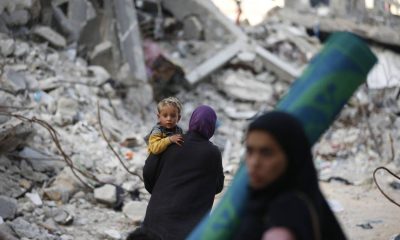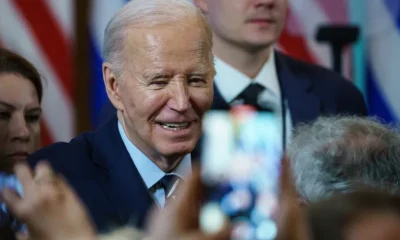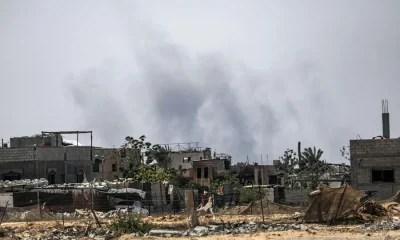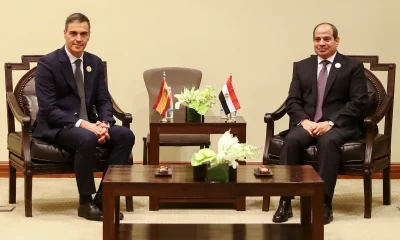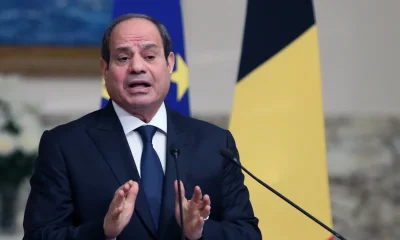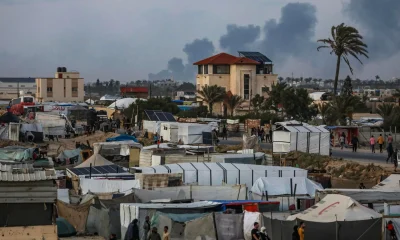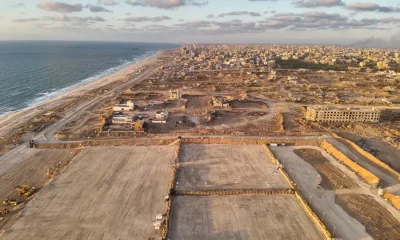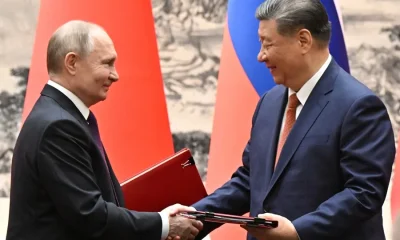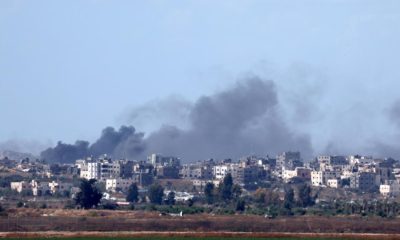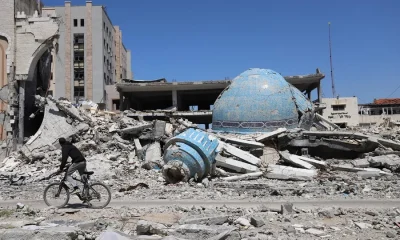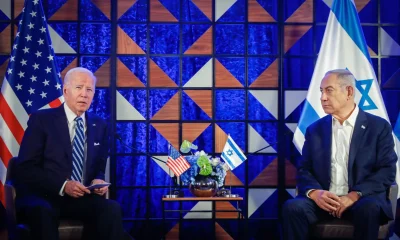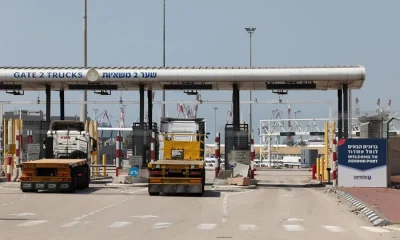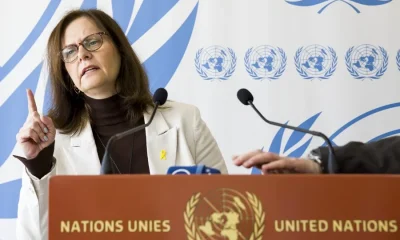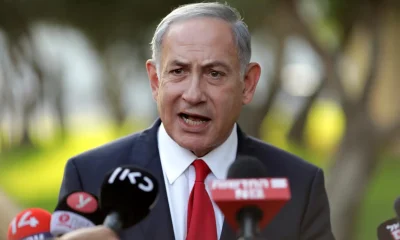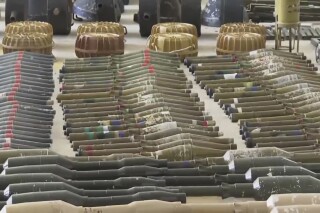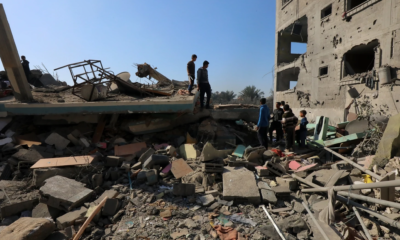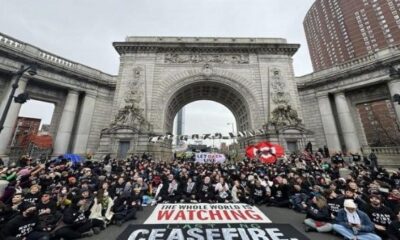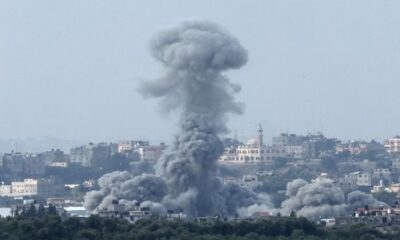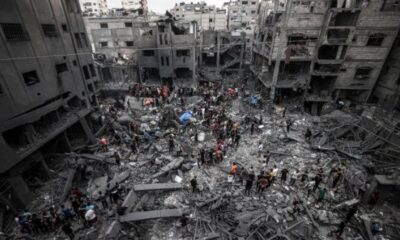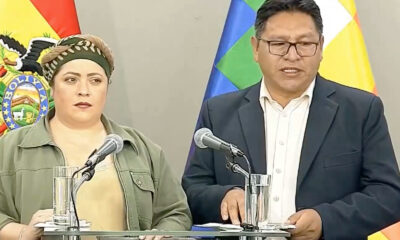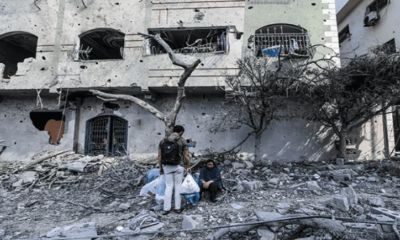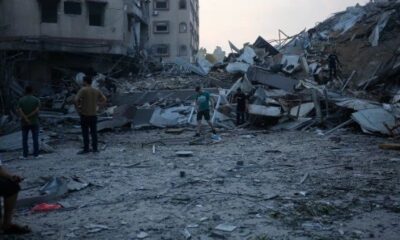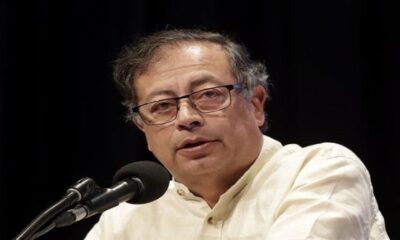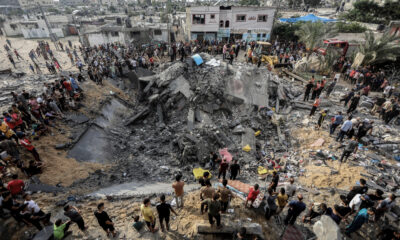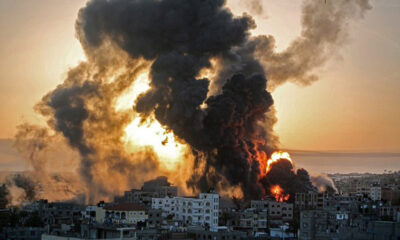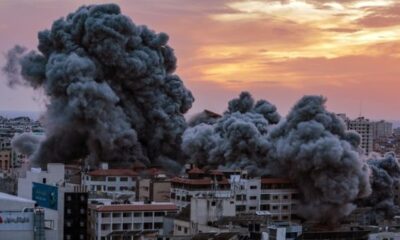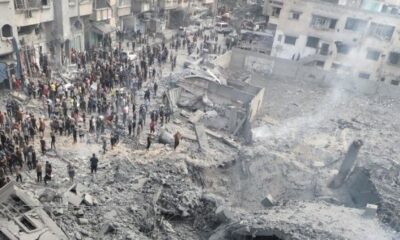International
Spanish chef José Andrés resorts to his influence and pain to change Israel’s policy in Gaza
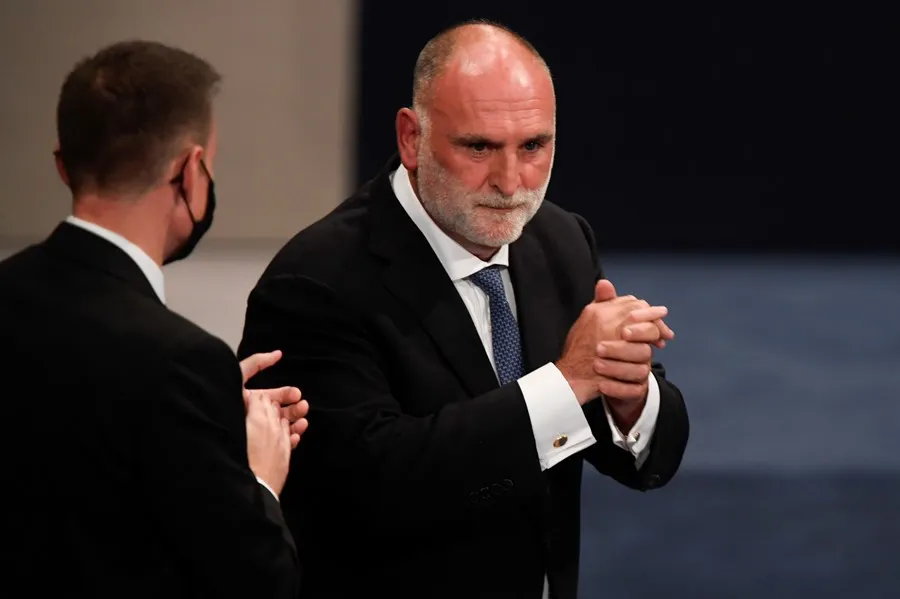
Spanish chef José Andrés has resorted to his influence in Washington and the immense pain he feels for the death of seven aid workers of his NGO, World Central Kitchen (WCK), so that the United States asks Israel for changes in its military strategy in the Gaza Strip.
When José Andrés speaks, Washington listens. He has important connections in political circles: the former president of the United States. Barack Obama awarded him the Medal of the Arts and Humanities in 2016, and earlier this year, the former president of the Lower House, Nancy Pelosi, nominated him for the Nobel Peace Prize.
The chef, who is also a U.S. citizen, has a close relationship with the president, Joe Biden, and both talked on the phone after the tragedy.
After that call, Biden issued one of the strongest statements to date against the Israeli government, accusing him of “not having done enough to protect humanitarian workers” since the beginning of the war and said he “have a broken heart” by the death of WCK aid workers in Gaza.
Since the moment of the tragedy, José Andrés has used the loudspeaker that gives him his position to question Israel’s policy and make it clear that this is not an isolated incident, since the beginning of the conflict 196 humanitarian workers have died and more than 33,100 Palestinians have asked for their lives.
Even more important, José Andrés has asked for an independent investigation into the attack on the WCK convoy and has urged the United States, Australia, Canada, Poland and the United Kingdom, countries of origin of the deceased aid workers, to join this call, although Washington has already refused to do so.
In an interview with the ABC network, broadcast this Sunday, José Andrés insisted on the need for an independent investigation and considered that Israel is waging a “war against humanity itself.”
“This is no longer about the seven men and women of WCK who perished in that unfortunate event. This has been happening for too long. It’s been six months attacking anything that seems to move,” said José Andrés.
“This doesn’t look like a war against terror. This no longer looks like a war to defend Israel. Actually, at this point, it seems that it is a war against humanity itself,” he added.
Therefore, he argued, it is imperative that a “deeper” investigation be carried out, in which the videos of the event and the radio conversations of the military involved can be analyzed.
“The one who has perpetrated the attack cannot investigate himself,” he stressed.
The Israeli Army has carried out its own investigation and, in its first conclusions published on Friday, it stated that the attack was the result of a chain of “serious mistakes” and assured that they fired believing that there were two Hamas “gunmen” inside the vehicles.
When asked about it, José Andrés was especially forceful. “Every time something happens, we can’t just include Hamas in the equation,” he said.
José Andrés has not only made this type of statement on the ABC network, but he also published an opinion article this week in The New York Times and has used his account on the social network X, with more than a million followers, to question Biden’s policies towards Israel.
The pressure on Biden is enormous, especially since the chef’s words come at a time when his policy towards Israel could cost him dearly in the November elections, especially in key states where the Arab community has an important weight, such as Michigan and Minnesota.
In this context, Biden spoke on the phone with Netanyahu on Thursday and gave him an ultimatum. For the first time, the US leader put conditions for his government’s support for the war in Gaza and warned that Washington’s policy would change if Israel did not take “concrete” measures to improve the humanitarian situation.
Hours later, Israel facilitated the entry of more humanitarian aid into Gaza and dismissed two commanders responsible for the attack on the co-operants.
The real test will now be the negotiations of the next few days in Cairo, in which the United States is putting pressure on Israel to reach an agreement with Hamas and achieve a ceasefire in the Strip, in exchange for the release of Israeli hostages.
International
Police investigate deaths of Rob Reiner and wife as apparent homicide
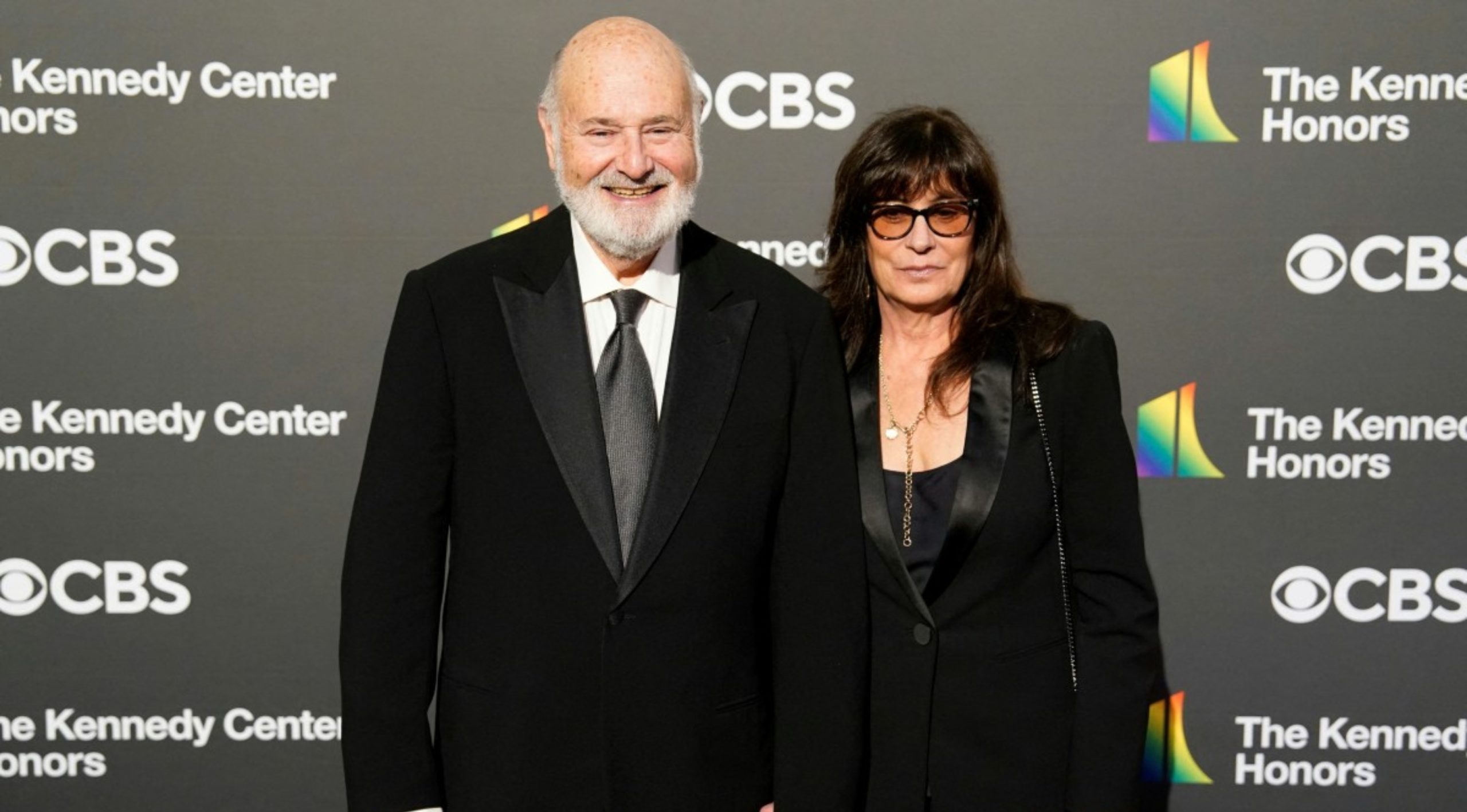
The Los Angeles Police Department (LAPD) is investigating the deaths of Hollywood actor and filmmaker Rob Reinerand his wife as an “apparent homicide,” amid a wave of tributes to the director of classics such as When Harry Met Sally.
According to U.S. media reports on Sunday, Rob Reiner and Michele Singer Reiner were found dead at their Los Angeles mansion with what appeared to be stab wounds.
Several political figures shared messages of condolence following the reported deaths of the director of A Few Good Menand his wife.
While the LAPD did not officially confirm the identities of the victims, it stated that homicide detectives were dispatched to the Reiner residence.
“At this time, no additional details are available and the investigation into an apparent homicide is ongoing,” the Los Angeles Police Department said in a statement posted on social media.
LAPD Deputy Chief Alan Hamilton told reporters that no arrests have been made and that no individuals are currently being questioned as suspects.
“I’m not going to confirm whether anyone is being questioned at this moment or not. We are going to try to speak with as many family members as we can,” Hamilton said.
CNN reported that a family spokesperson confirmed the deaths of Reiner and his wife.
California Governor Gavin Newsom, former U.S. President Barack Obama, and former Vice President Kamala Harrisissued statements expressing their condolences.
International
U.S. and Mexico Reach Deal to Address Water Deficit Under 1944 Treaty
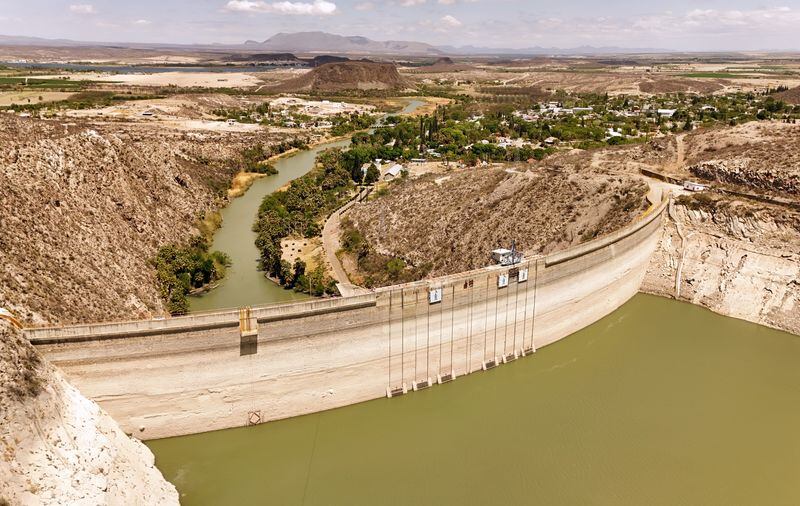
The United States and Mexico have reached an agreement to comply with current water obligations affecting U.S. farmers and ranchers and for Mexico to cover its water deficit to Texas under the 1944 Water Treaty, the U.S. Department of Agriculture said in a statement.
The department уточified that the agreement applies to both the current cycle and the water deficit from the previous cycle.
On Monday, U.S. President Donald Trump accused Mexico of failing to comply with the water-sharing treaty between the two countries, which requires the United States to deliver 1.85 billion cubic meters of water from the Colorado River, while Mexico must supply 432 million cubic meters from the Rio Grande.
Mexico is behind on its commitments. According to Washington, the country has accumulated a deficit of more than one billion cubic meters of water over the past five years.
“This violation is severely harming our beautiful crops and our livestock in Texas,” Trump wrote on Monday.
The Department of Agriculture said on Friday that Mexico had agreed to supply 250 million cubic meters of water starting next week and to work toward closing the shortfall.
Agriculture Secretary Brooke Rollins, quoted in the statement, said Mexico delivered more water in a single year than it had over the previous four years combined.
Trump has said that if Mexico continues to fall short of its obligations, the United States reserves the right to impose 5% tariffs on imported Mexican products.
Mexico’s Deputy Foreign Minister for North America, Roberto Velasco, said that a severe drought in 2022 and 2023prevented the country from meeting its commitments.
International
Several people shot in attack on Brown University campus
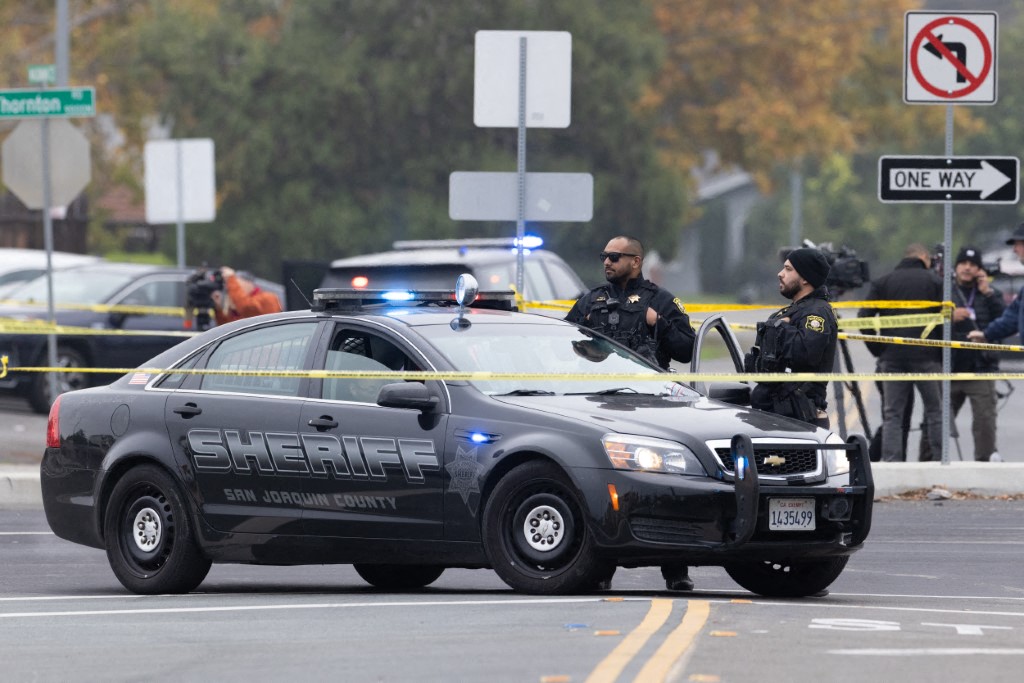
Several people were shot on Saturday in an attack on the campus of Brown University, in the northeastern United States, local police reported.
“Shelter in place and avoid the area until further notice,” the Providence Police Department urged in a post on X. Brown University is located in Providence, the capital of the state of Rhode Island.
U.S. President Donald Trump said on his social media platform Truth Social that he had been briefed on the situation and that the FBI was on the scene.
At 5:52 p.m. local time (11:52 p.m. GMT), Brown University said the situation was still “ongoing” and instructed students to remain sheltered until further notice.
After initially stating that the suspect had been taken into custody, Trump later posted a second message clarifying that local police had walked back that information. “The suspect has NOT been apprehended,” the U.S. president said.
-

 International4 days ago
International4 days agoWashington declares State of Emergency as atmospheric river brings severe flooding
-

 International4 days ago
International4 days agoU.S. to require five-year social media history from tourists under Visa Waiver Program
-

 Central America4 days ago
Central America4 days agoHonduras election crisis deepens as CNE president denounces intimidation attempts
-

 Central America4 days ago
Central America4 days agoOAS and EU urge honduran political actors to respect vote results and avoid unrest
-

 International4 days ago
International4 days agoCuba battles out-of-control dengue and chikungunya epidemic as death toll rises to 44
-

 International4 days ago
International4 days agoColombia says it would not reject Maduro asylum request as regional tensions escalate
-

 International2 days ago
International2 days agoSeveral people shot in attack on Brown University campus
-

 International4 days ago
International4 days agoEcuador on track for record violence as homicides hit highest level in Latin America again
-

 International4 days ago
International4 days agoSix ecuadorian soldiers jailed pending trial for alleged extrajudicial execution
-

 International7 hours ago
International7 hours agoPolice investigate deaths of Rob Reiner and wife as apparent homicide
-

 International2 days ago
International2 days agoU.S. and Mexico Reach Deal to Address Water Deficit Under 1944 Treaty
-

 Central America19 hours ago
Central America19 hours agoPanama seizes over three tons of drugs hidden in Caribbean port container
-

 Central America7 hours ago
Central America7 hours agoOAS urges swift recount in Honduras as election results remain uncertain

























